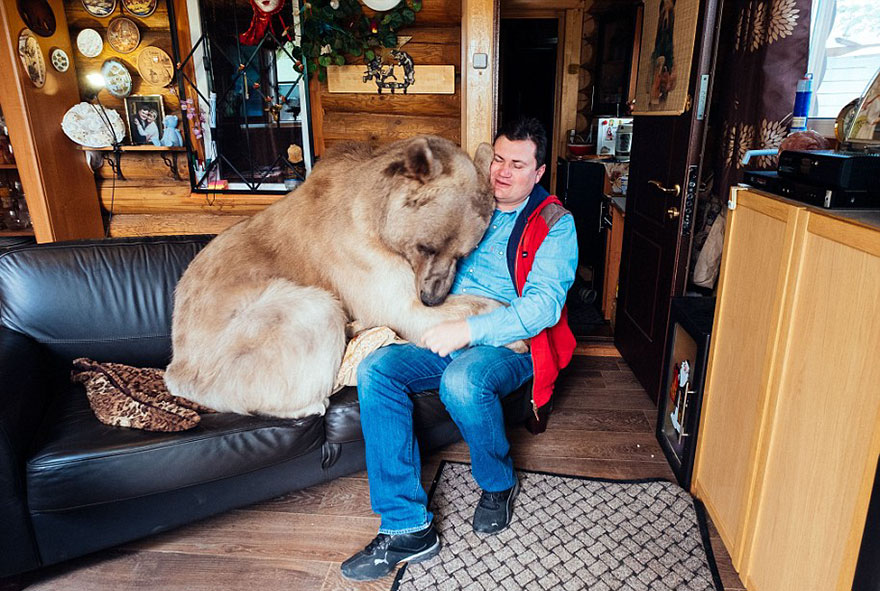Russian Lifestyle and Culture
Russians are not purely European and not exclusively Asian people. In this country two worlds unite.
Apartments and furnishings
When comparing European and Russian housing, it turns out that Russians live in more expensive, although less comfortable, houses than the rest of the world.
A person from the side will notice that many houses in Russia resemble fortresses besieged by the enemy:
- the windows of the first (and even the second) floors are protected with bars;
- heavy armored doors at the entrances and apartments;
- clever combination locks and intercoms;
- the concierge at the entrance.
All these things are silent signs of the desire of citizens to protect themselves from the danger of being robbed. The traditional gathering place for family members is the kitchen, especially if it is large. Here people spend a lot of free time. Family members, sometimes guests, gather here if they are close people, friends, and relatives. Usually there is a telephone and a small TV, a picture hangs, sometimes there are quite a few decorations. On the walls, most likely, there will be wallpapers. In Russia, it is not accepted, as in Europe, to paint the walls.
Traditionally the most important and honorable place in the house is occupied by bookshelves, bookcases with books. It is amazing for Russians to watch, for example, when Europeans decorate their windows with dolls, figurines, garlands, etc. before Christmas. So these decorations are turned “by their beauty” not to the inhabitants of the house, but to the street, i.e., they are put on display specifically for bystanders. The “weakest” place in Russian homes is the toilet or bathroom, especially in low-income households.
Animals in the house
Most of the inhabitants of Russia, even if they live in the city, have some living creatures at home. Especially often animals are in those families where there is a child.

Food
The main thing that Russian is famous for is the abundance of various snacks that precede any holiday table. Russians attach great importance to the abundance on the table: there should be a lot of everything so that there is a choice so that the eyes diverge from bright colors and wealth. This includes fish platter, meat, and special pickles with spices, salads, and much more. There are traditional salads, repeated in any restaurant and in every home, such as “Olivier” salad (in the West it is called “Russian “). But each Russian mistress necessarily has her own “brand-name” salad recipe, which she is proud of and keeps secret.
Porridges
Porridges are made from a wide variety of products of plant origin:
- semolina
- rice
- buckwheat
- millet
- corn
- pumpkin
Depending on the taste, they can be cooked with milk, or with the addition of dried fruit, or slightly salted and richly watered with butter. In the daily diet of Russians, there are a lot of flour products, especially bread. Bread in Russia is baked from wheat and rye with various additives, and it is delicious and fragrant. It is not by chance that Russians are bringing abroad not expensive souvenirs as a gift to their compatriots, but their own “black” flavored bread as “hello from the motherland.”
Since childhood, Russians have been taught to respect this product with respect, and if they throw out spoiled bread, this is considered a “sin,” and children are punished for it. And of course, the classic dishes in every Russian family include compulsory borsch (came from Ukraine) or Russian cabbage soup. Traditionally, the “second” dish for lunch for the Russians are meatballs. And as a dessert, the Russians are very fond of tea.
You must drink something with tea, so there should be sweets on the tea table:
- cake
- sweets
- jam
- honey
Russian entertainment
Russians perceive free time, as “rest,” as passive “doing nothing.” The middle and low-income class spends the winter rather monotonously: in front of the TV or companies among friends, including with Russian baths. The most popular types of summer and autumn holidays for all segments of the population are fishing, hunting, hiking in the forest for mushrooms and berries. Football, hockey, skiing are the most popular types of sport. In recent years, among young people, the popularity of martial arts is growing rapidly – karate, taekwondo, wushu, and others.

Now, according to the Ministry of Health of the Russian Federation, about 10% of Russians regularly play sports and physical culture. In recent years, gambling establishments are very common in large Russian cities. This can be a bowling alley, dog races, cock-fights and dog fights (illegal), roulette, slot machines, etc. Dance clubs and discos have been created especially for the non-cash youth public. Most often they are located in basements or abandoned former houses of culture.
Family Relations in Russia
The Russian family is a phenomenon and for foreigners it is unusual. First, they marry in Russia much earlier than in Europe: by the age of 25, girls are usually married, and have a child. In the overwhelming majority of cases, marriages are made out of love, quite often they marry only because “the time has come,” or “everyone is doing this.” Russians are horrified by the stories that in Europe or America children, having reached the age of majority, leave the family and lead their lives without devoting parents to it. Respect for elders is typical of the traditional way of life in Russia.
Behavioral stereotypes in relation to property
In the observations of foreign travelers, the ease with which the Russian peasant could appropriate someone else’s things without much remorse was often noted. At the same time, theft was morally justified by poverty. It happened (and can happen now) when a Russian person borrowed something, the action “lending” was understood only as “just giving,” but did not mean at all the intention to repay the debt.
But it is impossible not to note the opposite inclination of the Russians. Similarly, without hesitation, they are able to share everything they have with a person who is in a difficult situation. They can give it to the needy, and they can give it all away simply from an excess of joy, from the desire to share it.

Ernest Cooper is a renowned dating expert with over a decade of experience in the industry. He has helped thousands of men and women improve their dating skills and find lasting love. Ernest is known for his practical and down-to-earth approach to dating advice. He believes that finding love should be fun and enjoyable, not stressful and overwhelming. His methods are based on building confidence, improving communication skills, and developing a positive mindset.

